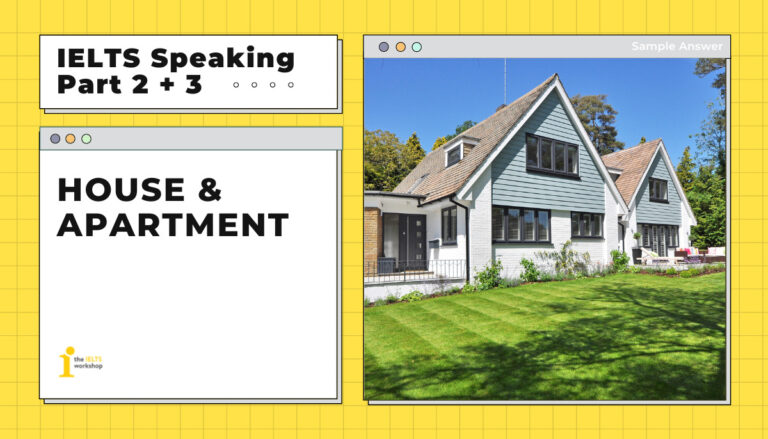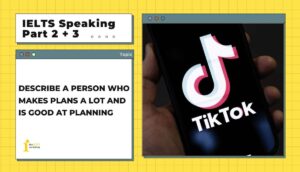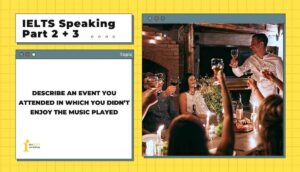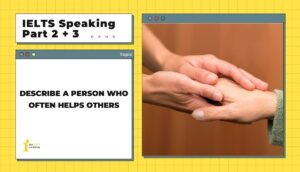House & Apartment (Nhà ở) là một chủ đề quen thuộc trong phần thi IELTS Speaking đặc biệt là trong Part 1. Tại chuyên mục giải đề Speaking lần này, The IELTS Workshop sẽ hướng dẫn bạn trả lời các câu hỏi của Topic này trong IELTS Speaking Part 2 & 3. Các bạn hãy tham khảo bài mẫu của thầy Công Minh – giáo viên của The IELTS Workshop HN nhé.
Part 2: Describe a house or an apartment you would like to live in
Describe a house or an apartment you would like to live in
You should say:
Who he/she is
When you knew him/her
Why you want to know more about him/her
And explain how you feel about him/her
Dưới đây là bài mẫu của thầy Công Minh cho topic “Describe a house or an apartment you would like to live in” các bạn hãy tham khảo nhé. Bài mẫu phù hợp cho những bạn đặt mức điểm đạt được là 6.0 – 6.5.
1. Bài mẫu (Sample Answer)
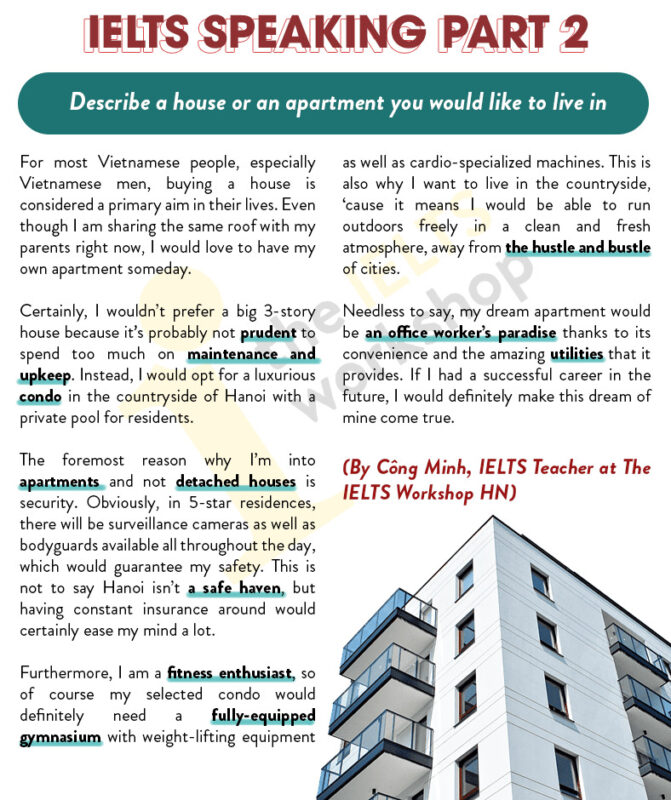
2. Từ vựng (Vocabulary Highlight)
- prudent (adj): khôn ngoan
- maintenance and upkeep: bảo trì và bảo dưỡng
- condo: chung cư
- apartments: căn hộ
- detached houses: nhà biệt lập
- a safe haven: một thiên đường an toàn
- fitness enthusiast: người đam mê thể dục
- fully-equipped gymnasium: phòng tập thể dục đầy đủ tiện nghi
- the hustle and bustle: hối hả và nhộn nhịp
- an office worker’s paradise: thiên đường của một nhân viên văn phòng
- utilities: tiện ích
Part 3: Houses
1. What kind of apartment is the most popular in your country?
Well, I believe it ranges wildly depending on the locations in Vietnam. For example, if you live in Hanoi and Ho Chi Minh City, where the vacant ground is a rare commodity, you’d most likely encounter apartments in high-rise buildings for leasing. These would of course be equipped with at least one or several lifts to accommodate the needs of their residents. However, if you’re in Da Nang or other coastal cities in central Vietnam, flats would primarily be around 5 stories, and their acreage tends to be a lot bigger than those in megacities.
- vacant ground: bãi đất trống
- commodity: hàng hóa
- high-rise: cao tầng
- leasing: cho thuê
- accommodate the needs of their residents: đáp ứng nhu cầu của cư dân
- acreage: diện tích
2. What is the difference between the houses that young people and old people live in?
There are several factors that differentiate the accommodation of the elderly and the young. In terms of houses for those still in working age, they would opt for inner-city residence, which is easy to commute to work on a daily basis. This is totally because of their hectic schedule at work that requires them to go to work as quickly as possible. On the other hand, retired people would tend to prefer a mansion or a villa near the outskirts, separated from the fast-paced corporate life that they used to ‘endure’ back in the day. These people, I think, would prioritize their inner peace above all else.
- fast-paced corporate life: nhịp độ nhanh của cuộc sống công ty
3. What are the differences between houses and apartments?
In my opinion, there are two primary differences between these 2 kinds of accommodation. First of all, apartment owners simply do not have roof rights, which means they are all partial owners of the common space in the building. Secondly, unless one lives in a private mansion, houses do not regularly consist of a swimming pool, while most high-end flats provide their residents with that amenity. There could be more reasons but for me, those two are the main ones.
- roof rights: quyền sử dụng mái nhà
- amenity: tiện nghi
4. Do people usually buy or rent a house? Why?
This is totally dependent on the individuals and their income. On the one hand, a high-income or wealthy person would, most of the time, purchase a house with full accredited proof of ownership. This would provide them stability, and sometimes, it could be a form of long-term investment. On the other hand, those who are in the lower side of the income scale would most likely rent accommodation because buying one means having to spend a huge sum of capital expenditure, which they simply cannot afford to. Of course, there can be other personal preferences. For example, some people want to move from place to place, shifting accommodation every now and then, and buying a house is cumbersome in that situation.
- accredited proof of ownership: bằng chứng về quyền sở hữu được công nhận
- stability: sự ổn định
- capital expenditure: chi tiêu vốn
- cumbersome: cồng kềnh
Bài mẫu bởi thầy Công Minh – Giáo viên The IELTS Workshop HN
Trên đây là những nội dung bạn có thể tham khảo khi luyện tập chủ đề House trong IELTS Speaking Part 2 và Part 3. Ngoài ra, bạn có thể tham khảo thêm từ vựng về chủ đề House cũng như các chủ đề khác tại kho bài mẫu Speaking.
Nếu bạn đang gặp khó khăn chưa có phương pháp xử lý idea trong IELTS Speaking Part 3, hãy tham khảo ngay lộ trình học tại khóa Senior của The IELTS Workshop.


